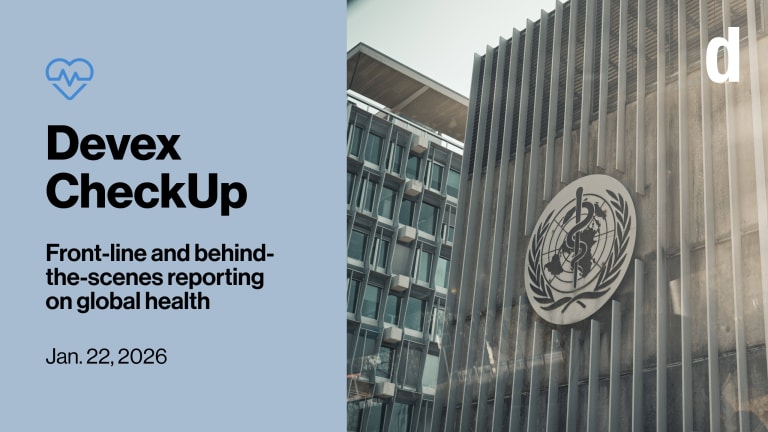
The UK Biobank, a large-scale biomedical database containing health and lifestyle information from half a million individuals, has created a new fund allowing researchers from low- and middle-income countries to access its data.
The Global Researcher Access Fund will cover the cost of accessing the database — £500 ($635.18) for three years. This is already reduced pricing, as researchers from high-income countries normally pay £9,000. But it’s still a hefty price to pay for many research scientists in low- and middle-income countries where the average monthly salary can be less than £500.
“We already provide a reduced rate for research from low- to middle-income countries, but for some, we found anecdotally that that can be … still prohibitively too high,” Lauren Carson, head of research development at the UK Biobank, told Devex.
Why is this important: The UK Biobank is considered the “world’s most comprehensive” database of health and lifestyle information, including MRI scans and genomic data, which can aid research for the benefit of public health. Scientists from academia and the pharmaceutical industry have used its data, for example, for research on the impact of COVID-19 on the brain, and for the research and development of drugs against obesity.
According to Carson, researchers from low- and middle-income countries — those who were able to pay for the application fee — have also used data from the Biobank when undertaking research related to Type 2 diabetes and dementia.
However, they’ve had less than 50 research projects from low- and middle-income countries to date.
“This is obviously very small in comparison to other research projects … which have been predominantly undertaken in more well-off countries,” Carson said.
The fund is meant to address that imbalance, and reduce the financial barriers faced by LMIC researchers in undertaking such research projects for public health, she said.
Opinion: Data we trust is a vital weapon as diseases gain ground
The process of data collection isn’t "sexy," it doesn’t guarantee media headlines, but it gets results if you're trying to eliminate a neglected tropical disease like blinding trachoma. Epidemiologist Caleb Mpyet has been doing just that for the past decade.
“We are broadening and flattening the playing field so that it's not just for those who can afford to access the research. It is for anyone globally because great minds can be in any country all over the world,” she added.
According to the institution, their top three users are researchers from the United Kingdom, the United States, and China, although the data has been used by over 30,000 researchers in over 90 countries.
Who is eligible for the fund: Approved UK Biobank researchers at institutes located in low- and middle-income countries that are on the UK Biobank’s list are eligible to be covered by the fund. The list includes over 120 countries and territories but excludes countries sanctioned by the U.K. and the U.S., including Russia, North Korea, Syria, Belarus, Cuba, Iran, and Venezuela.
What’s next: The fund aims to raise $100,000. So far, they’ve raised $70,000. It has received philanthropic donations from big pharmaceutical companies, including AstraZeneca, Bristol-Myers Squibb, Johnson & Johnson, and Regeneron.








